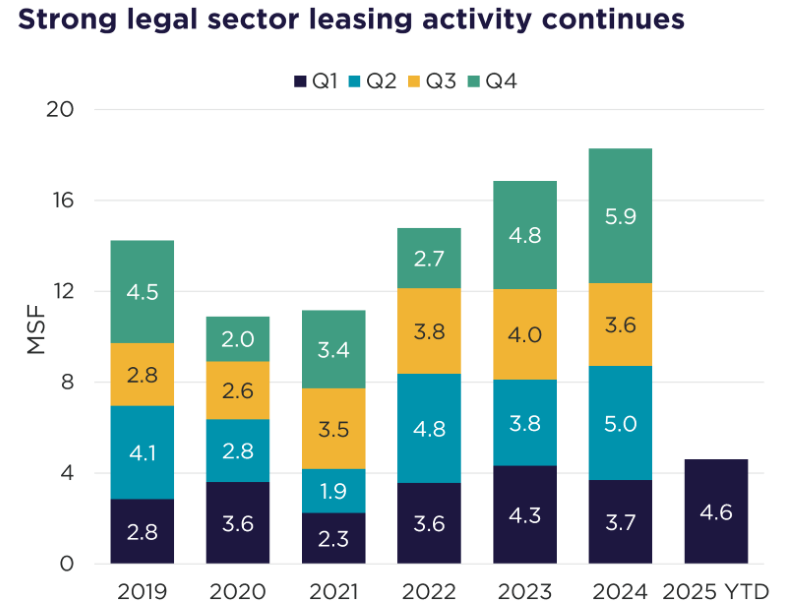When CRE Sellers Are No Longer King
These "market" provisions may swing toward buyers, according to Stephen Toohill of Solomon Ward Seidenwurm & Smith LLP.
For an extended period of time, CRE transactions have occurred in a very seller-oriented market. With vastly available capital looking to invest in CRE and relatively limited opportunities to deploy the capital, a few very seller-oriented purchase and sale agreement provisions have turned into “market” provisions, where sophisticated parties generally understand the parameters of what can be negotiated from a buyer’s perspective.
At some point when the market leverage changes, and we enter into a more buyer-oriented market, sellers should be prepared for buyers to push back on some of these current market provisions. These are some of the first provisions that buyers will most likely attempt to push back on and negotiate.
The As-Is Clause
Typically, a PSA incorporates an as-is clause, which indicates, in very specific terms, that with the exception of any representations and warranties of the seller set forth in the PSA, the buyer will undertake all necessary due diligence to investigate all aspects of the property and will be purchasing the property in an as-is condition. While generally there is not a great deal of buyer pushback on this provision, from a seller’s standpoint, buyers may seek to dilute this with additional representations and warranties from the seller or an extended due diligence period. While it is important to make sure that the buyer has sufficient time (at least 30 days is standard) to perform all necessary buyer investigations relating to the property, including, for example, obtaining a property survey and, at a minimum, a Phase I Environmental Report. However, an extended due diligence period is effectively a buyer’s option to renegotiate the purchase price if CRE property values decrease during the extended period.
Limited Seller Representations and Warranties
A seller, in the current market, is also able to provide relatively limited seller representations and warranties. As buyers seek to dilute the as-is clause with additional seller representations and warranties, sellers can mitigate the risk of such use of representations and warranties by limiting them to the knowledge of the seller, with a caveat that there is no seller independent investigation. The seller’s knowledge qualifier can be further limited to the person in the seller’s organization with the most knowledge of the property and/or the property manager.
Limited Time Period on Survival of Seller Reps
In addition to limiting additional sellers’ representations and warranties required by buyers in a buyer-oriented market with knowledge qualifiers, sellers can also limit the buyer’s claim period for alleged damages attributable to a breached representation or warranty. Generally, the statute of limitations in each state will govern the time period for an action under a contract and, therefore, the time period for buyer recourse for any inaccurate seller representations and warranties. The applicable California statute of limitations is four years. In this seller-oriented market, most sellers take the position that the survival period of representations and warranties will be somewhere between six and 12 months. In a more buyer-oriented market, the buyer will typically seek a survival period of 12 months or longer, and may seek additional protections relating to claims made against the seller on these post-closing representations and warranties, such as a purchase price holdback or a guaranty of payment from a seller parent or a related seller entity.
Limitation on Seller Liability
Even in a buyer’s market, sellers can also typically negotiate and require a cap on the seller liability for buyers’ post-closing claims of a breached representation or warranty. The cap number varies significantly based upon the purchase price and a number of other issues but in this seller-oriented market is usually in the range of 2 percent to 4 percent of the purchase price.
Waiver and Release of Claims
Another seller-required provision/protection that is typical in this market is a full waiver and release of all the buyer’s known and unknown claims against the seller on the close of escrow, other than those representations and warranties that expressly survive the closing. In the current seller-oriented commercial real estate market, obviously the CRE seller has a great deal of negotiating leverage/power to prepare a very seller-oriented PSA and to require the buyer to accept business terms and provisions that certain buyers might view as unfair. Markets always change.
At some point in time, when a more buyer-oriented market emerges, the provisions and issues that are discussed in this article are probably the first ones that a buyer and the buyer’s attorney will attack and attempt to negotiate to have a PSA that is much more “neutral” to the buyer and the seller. Sellers should be wary of agreeing to buyer protections that can be used as a sword by the buyer to either renegotiate the purchase price if property values decrease during escrow or to negotiate a rebate after closing, in the form of a buyer’s claim of damages.
Stephen Toohill is a partner at Solomon Ward Seidenwurm & Smith LLP. His practice focuses on representation of commercial, retail, hospitality, industrial and biotech developers, owners and tenants, with respect to acquisition, development, leasing and sale of improved and unimproved property including office and industrial properties.









You must be logged in to post a comment.